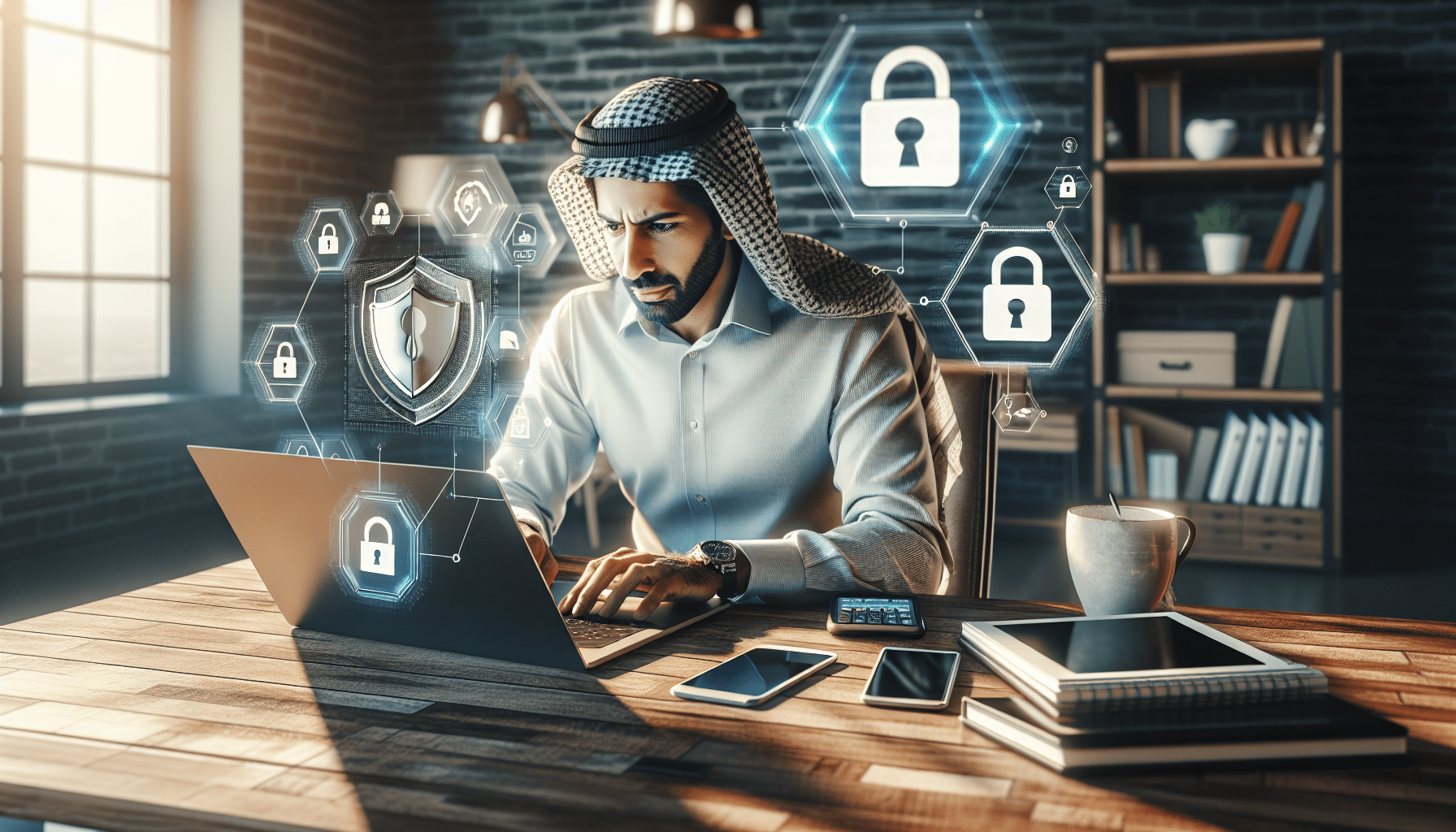Advertisements
In the digital age we live in, online security has ceased to be an option and has become a vital necessity. 🌐 Every day, millions of people connect to the Internet to work, study, shop or simply for entertainment, but how many of them are really protected against cyber threats?
Advertisements
That’s why, in this article, we’ll cover surefire tips to keep you safe online. First, we’ll explore the basic protection measures we should all take, from using strong passwords to two-factor authentication. We’ll also discuss the importance of keeping your devices and software up to date, as well as recognizing and avoiding common online scams.
We also cannot forget social media, which, although an excellent communication tool, can also become a minefield for privacy. Here, we will provide you with strategies to adjust your privacy settings and share information safely.
Advertisements
Finally, we'll offer you additional resources and tools you can use to further strengthen your online security. From browser extensions to monitoring apps, each resource is designed to give you an extra layer of protection.
Get ready to discover how to become a more confident and aware digital user. Let's get to it! 🚀
Protect your digital life: foolproof tips to ensure your online security
The benefits of staying safe online
Nowadays, our digital life has become as important as our offline life. From banking transactions to communicating with loved ones, everything is done over the internet. This offers us great convenience, but it also exposes us to risks if we do not take the right measures to protect ourselves. By following certain tips and adopting safe habits, we can enjoy the benefits of digital life without compromising our security.
Use strong and unique passwords
One of the fundamental pillars of online security is the use of strong passwords. A strong password should contain at least 12 characters and include a combination of upper and lower case letters, numbers and symbols. Avoid using obvious passwords such as “123456” or “password.” Also, it is crucial not to reuse passwords across different services. If an attacker gains access to one of your accounts, they will not be able to access all of your other accounts.
To manage your passwords efficiently and securely, consider using a password manager. These tools generate and store complex passwords for each of your services, allowing you to remember them effortlessly.
Enable two-factor authentication (2FA)
Two-factor authentication (2FA) adds an extra layer of security to your online accounts. Even if someone obtains your password, they won't be able to access your account without the second authentication factor, which is usually a code sent to your mobile phone or generated by a specific app. Services like Google, Facebook, and online banks offer the option to enable 2FA, and it's highly recommended to do so whenever possible.
Keep your software up to date
Software developers release regular updates to fix security vulnerabilities and improve the performance of their apps. Ignoring these updates can leave your device open to attacks. Make sure to keep your operating system, browsers, and all apps up to date. Set your devices to perform automatic updates whenever possible.
Use a virtual private network (VPN)
A virtual private network (VPN) encrypts your internet connection, making it harder for cybercriminals to intercept your data. This is especially important when you connect to public Wi-Fi networks, such as those at coffee shops, airports, or libraries. VPNs can also help you access geo-restricted content and protect your online privacy.
Beware of suspicious emails and links
Phishing is a technique used by cybercriminals to trick you into giving up personal information such as passwords and credit card numbers. These attacks often come in the form of emails or messages that appear to be from trusted sources. Always verify the sender's email address and do not click on links or download attachments from unknown sources. If you receive an email that seems suspicious, contact the company or person who supposedly sent it directly to verify its authenticity.
Protect your personal information on social networks
Social media is a goldmine for cybercriminals looking for personal information to carry out their attacks. Set your accounts to the maximum privacy possible and be careful about the information you share publicly. Avoid posting sensitive data such as your address, phone number or financial information. Also, be selective with friend requests and verify the authenticity of profiles before accepting them.
Make regular backups
Data loss can occur for a variety of reasons: ransomware attacks, hardware failures, or simply human error. Regularly backing up your data ensures that, in the event of a loss, you can recover your information without further inconvenience. You can use external hard drives, cloud storage services, or a combination of both to ensure that your data is always safe.
Install and update security software
A good antivirus software protects you against malware, viruses, and other online threats. Make sure you have a reliable security program installed and keep it up to date. In addition to antivirus, consider installing additional software such as firewalls and anti-spyware for more comprehensive protection.
Educate your loved ones
Online safety is not just about our individual actions. Our family and friends should also be informed and take steps to protect themselves online. Share

Conclusion
In today’s digital world, online security is more crucial than ever. Protecting your digital life isn’t just about keeping your devices safe, but also about protecting your personal information and online activities. By following the tips we’ve provided, such as using strong passwords, two-factor authentication, and regularly updating software, you can significantly reduce your risk of falling victim to cyberattacks. Additionally, it’s critical to be aware of threats like phishing and malware, and to constantly educate yourself on new tactics that cybercriminals employ.
Using virtual private networks (VPNs) and appropriate privacy settings on social media also play an important role in protecting your identity and personal data. Remember that prevention is the best strategy to avoid online security problems.
In short, digital security is a shared and ongoing responsibility. By implementing safe practices, you protect not only yourself, but also everyone you interact with in the digital world. Don't underestimate the importance of cybersecurity; invest time and resources in protecting your digital life today to avoid bigger problems tomorrow. 🌐🔒
Source Links
INCIBE Online Security Guide




